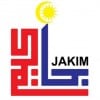Halal Street
The Halal Digital Chain aims to create an integrated and secure digital halal ecosystem to inform consumers if a product has been certified in other countries, and what that certification entails.
The blockchain ledger database is expected to seamlessly connect components throughout the halal value chain.
 “It will allow Malaysia’s halal industry to continue to develop and progress as a key player in the global halal marketplace. The potential for expansion and evolution of this system is limitless?,” said Sirajuddin bin Suhaimee, director of the Malaysia Halal Council Secretariat, a part of the Malaysia’s Department of Islamic Development Malaysia, Jakim.
“It will allow Malaysia’s halal industry to continue to develop and progress as a key player in the global halal marketplace. The potential for expansion and evolution of this system is limitless?,” said Sirajuddin bin Suhaimee, director of the Malaysia Halal Council Secretariat, a part of the Malaysia’s Department of Islamic Development Malaysia, Jakim.
“The ecosystem that Hadic will bring about sits in line with Jakim’s ongoing expansion as well as recognition and connection to global certification bodies. With blockchain, the integrity of product information is secured, and that provides a systemised and highly visible traceability platform?.”
Being connected to Hadic will mean that halal products and services providers will be part of a global halal data pool, which provides direct access to buyers and sellers in over 42 international markets.
 The system also integrates with the Verify Halal, app which provides users with instant verification of a product’s Halal status, as well as a fully traceable supply chain.
The system also integrates with the Verify Halal, app which provides users with instant verification of a product’s Halal status, as well as a fully traceable supply chain.
Additional social elements such as geotagging, comments, ratings and data analytics will provide users with a fully integrated commerce and business intelligent network designed to easily navigate the digital halal economy.
“Jakim chose five of us among out of companies in Malaysia to be the first sign-ups to the project?,” said Siti Roziah, co-founder of Miss Elwani, which she runs with her daughter from suburban Kuala Lumpur.
“I think we were chosen because most certified products are food and beverage and there aren’t so many personal care products?.”
Siti said she has encountered problems with products falsely claiming to be halal in Europe and Asia.
“I was really concerned about products overseas that say they were halal but maybe they are not. By getting all the products in check, it’s easy for us to know what to buy?.”
“The beauty side of the industry is considered as bitchy. A lot of people sometimes over-claim what their products are and what they can do?.”
According to Amnah Shaari, chief executive of Serunai Commerce, which developed the blockchain database as well as the Verify Halal app, Hadic will eventually evolve into an end-to-end interface that will fulfil all aspects of the halal market, from verification and supply chain traceability to consumer insights and secure payments.
“The Hadic system allows for a harmonisation of the global halal economy, which is presently fractured due to the numerous players in the market?,” Amnah said.
“By digitising the industry via a blockchain system that creates a secure and chronological chain of information across the entire supply chain, the industry will reach exponential heights in further developing and progressing the global Halal market and the adoption of Halal standards as a worldwide mark of quality, dependability and excellence.”



